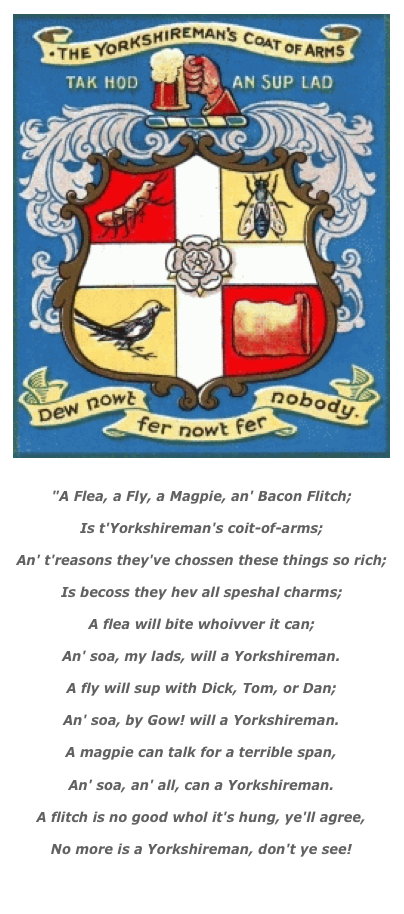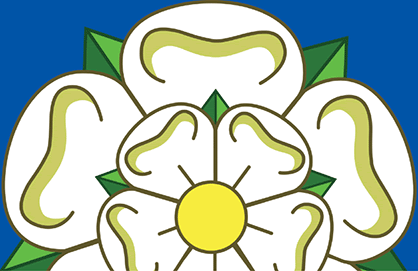Yorkshire Facts
Yorkshire Parkin
In an area with a healthy appetite for cakes and sweet things, Yorkshire Parkin is probably the best known speciality.
Somewhere between a tea bread and cake, parkin is a filling staple of Yorkshire Afternoon Tea. Although it is eaten all year round, it has come to be particularly enjoyed on 5 November to help remember another famous product of Yorkshire, Guy Fawkes. The Association is so close in some places, like Leeds, that the day is known not as Bonfire Night but as Parkin Day. The source of the name is unknown, but it is probably in honour of a cook of the same or similar name who baked a particularly good version.
Parkin has spread across the north, and in 1800 Dorothy Wordsworth notes in her Lake District journals that she cooked it for her brother William. As it became more popular so recipes began to vary, alternately producing cake-like versions in one place and biscuity in another. Needles to say, each recipe claims to be the best and most authentic, but most agree that oatmeal, treacle and enough ginger to warm the blood are key ingredients. In Yorkshire and elsewhere it is known as a type of traditional 'cut-and-comae-again' cake that will keep moist and improve over a couple of weeks and give full value for money.

A recipe for Yorkshire Parkin
120g Butter
120g Golden Syrup
120g Dark Treacle
120g Soft Brown Sugar
250g Plain Flour
3 teaspoons Ground Ginger
2 teaspoons Ground Cinnamon
1 teaspoon Bicarbonate of Soda
250g Medium Oatmeal
1 Egg
pinch of Salt
Melt the butter over a very low heat. Add the Syrup, treacle and sugar, and stir until the sugar dissolves. Sieve the flour, ginger, cinnamon, salt and bicarb into a bowl and mix in the oatmeal.
Make a well in the centre of the mix and break the egg into it. Beat and gradually add the syrupy mixture to the bowl until you have a soft, smooth consistency. Loosen with a little milk if necessary. Pour into a greased tin or tray to a depth of an inch or so. Bake in a preheated low oven, 150c (300f), Gas Mark 2, for 50-60 minutes, until firm. Cool, then cut into squares. Leave for several days to obtain the best consistency - if you can wait that long. Serve with a cup of Yorskhire Tea.
God's Own County
Yorkshire natives like to call their home 'God's own County', but the slogan is not original to the area. The first use of the phrase is claimed by New Zealand, and there is evidence of it being used as far back as the late 1800s. It has also been adopted as a tourist marketing slogan by other places, including Australia and Kerela in Southern India. At some point it was tweaked slightly for use in Yorkshire - but by whom and when is unclear
Marks, Spencer & Yorkshire
Marks & Spencer now has over 500 hundred shops on high streets up and down the country, but its origins are all in Yorkshire.
The business was founded by Michael Marks, a Polish- Lithuanian refugee who started out by buying a few pounds worth of fabric and household goods from a Leeds wholesaler that he then peddled around the nearby villages from a handcart. By 1884 he had made enough money to set up his first stall on Kirkgate Market in Leeds - a Penny Bazaar that, to excuse his poor English as well as to make things simple for his shoppers, carried the sign 'Don't ask the price, it's a penny'.
Marks opens other bazaars in Castleford, Wakefield and other towns, but needed extra capital to grow the business further. In 1894 he joined forces with Tom Spencer, a Skipton-born cashier at the wholesalers with which he had started out. They made a great team. Marks an ambitious salesman and Spencer a steady voice of caution who looked after the office and warehouse and, in the great Yorkshire tradition, kept a close eye on spending. Together they quickly grew the number of bazaars and shops into cities across the UK, and though both died reliably young in the early 1900s, the business continued to be a family concern under Mark's son. Spencer initial investment for a half-share in the company was £300; Marks & Spencer now turns over some £8 billion a year.
Yorkshire Poems
'Speak of the North' - Charlotte Bronte
Speak of the North! a lonely moor
Silent and dark and trackless swells,
The waves of some wild streamlet pour
Hurriedly through its ferny dells.
Profoundly sill the twilight air,
Lifeless the landscape; so we deem,
Till like a phantom gliding near
A stag bends down to drink the stream.
And far away a mountain zone,
A cold, white waste of snow-drifts lies,
And one star, large and soft and lone,
Silently lights the unclouded skies.

The Yorkshire Terrier

Yorkshire Terriers have remained one of the most popular breeds not only in the UK, but elsewhere in the world and for good reason. They make wonderful companions and being so adaptable, they happily fit in to an owner's lifestyle with the greatest of ease whether they live in an apartment in town or a house in the country. Although small in stature with lovely long, fine and silky coats, the Yorkie has a big personality and are always ready to take on the world.
Yorkies are outgoing by nature and were originally bred in the UK during the mid-19th Century so the breed is a relative newcomer. Over the years these fiesta, courageous terriers have found their way into the hearts and homes of many people, thanks to their charming looks and fun-loving personalities.
